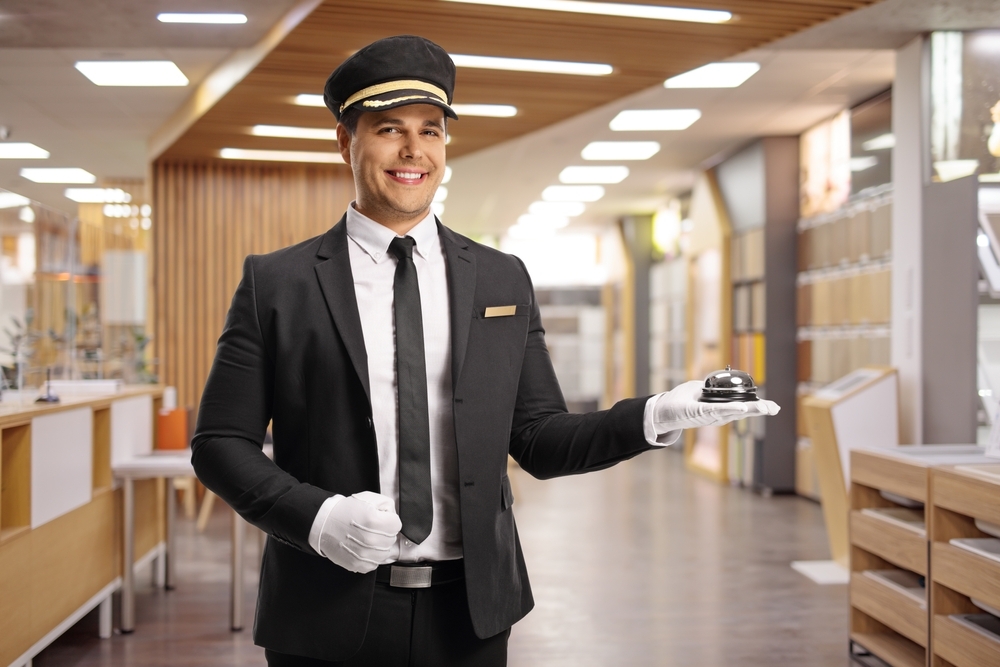Top Strategies for Tackling Common Hotel Problems and Solutions
By Hamza Benhlima · 23. April 2024
When it comes to managing a hotel, addressing guest concerns, maintaining facilities and navigating revenue fluctuations is the key to success.
This article dives into common hotel issues and offers practical solutions.
Discover tips to improve guest satisfaction, streamline operations and optimise profits to ensure your hotel’s success🏆.
Key Takeaways
- Addressing guest complaints with empathy and quick solutions and improving communication to minimise misunderstandings can greatly improve guest satisfaction.
- Enhancing guest experience through personalization and loyalty programs, along with streamlining hotel operations, can boost guest retention and overall hotel performance.
- Remaining flexible in response to industry trends and external factors, such as implementing sustainability initiatives and adopting new technologies, are essential for a hotel’s success.
Addressing Guest Complaints
 angry hotel guest complaining on the phone
angry hotel guest complaining on the phone
Addressing guest complaints in hotel management is crucial. It not only affects the guest’s experience but also greatly impacts the hotel’s reputation, as online reviews can significantly influence a business’s success.
Active listening, empathy, and quick solutions are key when handling common hotel guest complaints.
For example, a guest arrives at your hotel after a long journey, only to find a long line at the front desk.
A simple acknowledgment of their fatigue, and an expedited check-in process could turn an otherwise frustrating guest complaint into a positive experience.
Keep in mind that the front desk often shapes the guest’s initial impression, and first impressions are often lasting.
Miscommunication
Miscommunication in hotels, often due to language barriers and unclear policies, can result in challenges like misunderstandings and unmet guest expectations.
These issues can lead to dissatisfaction and even impact staff morale.
To address this hotel challenge, clear signage around the hotel and written confirmations of services requested can be a great help in such cases.
However, ongoing staff training in communication skills is even more effective, as it can help minimise misunderstandings and improve overall guest satisfaction.
Inadequate Facilities
Parking issues in hotels, such as unexpected fees, often leave guests dissatisfied.
To address this, hotels can proactively share information about parking availability and fees to prevent complaints and unhappy guests.
Here are some ways to do so:
- Include parking information on your website, brochures, and other promotional materials.
- Communicate parking details directly to guests through calls or emails.
- Provide clear and accurate information about parking fees and any restrictions.
- Offer alternative parking options if your hotel does not have on-site parking.
Enhancing Guest Experience
 Person Checking Order From Hotel Room Service
Person Checking Order From Hotel Room Service
Whether it’s a business traveller looking for a smooth check-in process or a leisure traveller desiring personalised services, guest expectations vary widely. Meeting these expectations is key🗝️ to elevating the guest experience.
From providing large quantities of free hotel room supplies like keys, shampoo, soap, coffee and tea to offering efficient room service, hotels need to cater to different needs.
Staff should be equipped to handle a range of situations, from addressing noise complaints to managing hotel guest concerns.
And when it comes to billing queries, clarity and calmness are crucial, as transparent and clear communication during check-out builds trust between the hotel and its guests.
Personalization
Just like receiving a personalised email from your favourite store or enjoying a custom-made playlist on your music app, personalization has a way of making you feel valued.
Hotels can also benefit from this approach.
Hotels can offer personalised experiences for hotel guests by:
- Creating tailored pre-arrival communications
- Recognizing individual preferences during their stay
- Providing services such as spa treatments, activities, and dining options based on each guest’s unique preferences
This level of personalisation not only enriches the overall guest experience but also creates loyalty, resulting in improved retention and revenue.
Loyalty Programs
In addition to providing personalised perks, loyalty programs nurture guest loyalty, promoting repeat visits and ultimately establishing a dependable customer base.
Loyalty programs can be an invaluable tool for hotels, especially in today’s competitive market.
Hotels can cultivate long-term customer relationships by enticing guests to return with personalised benefits such as room upgrades, late check-outs, or exclusive amenities.
Streamlining Hotel Operations
 hotel boutique bellboy
hotel boutique bellboy
A hotel relies on the smooth operation of its various components.
From front desk operations to housekeeping, every facet of the hotel needs to work in harmony to provide the best guest experience. This is where the importance of streamlining becomes clear.
Utilising comprehensive property management systems and promoting effective communication between departments can enhance operational efficiency and guest satisfaction.
Property Management Systems
By implementing a Property Management System (PMS), hotels can effectively manage reservations, front desk activities, and financial reporting.
A PMS can boost operational efficiency by offering real-time access to essential hotel data, including guest information and room inventory.
Additionally, PMS solutions facilitate dynamic pricing by allowing rate adjustments across multiple booking channels.
With regular training, staff can utilise the PMS efficiently, effectively employing its features to enhance guest services.
Staff Training and Development
Recognizing and attending to guests’ personal needs upon arrival, handling complaints effectively, and utilising property management systems optimally – all these require well-trained hotel staff.
Regular staff training not only enhances service quality but also improves guest satisfaction.
Facing economic challenges, the hospitality industry is emphasising talent management and training as important strategies to adapt to market shifts and stay competitive.
By viewing feedback from guest complaints as opportunities for learning and improvement, hotels can integrate these insights into service enhancement strategies.
Overcoming Revenue Challenges
As with any business, there are challenges to maintaining a steady revenue stream. These challenges can range from seasonal demand changes to economic conditions and shifting travel patterns.
Tools such as online marketing, direct bookings, and data analysis software can be used to tackle these revenue challenges. In other words, the right strategies and tools can turn these challenges into opportunities for growth.
Dynamic Pricing
Dynamic pricing adjusts prices based on factors like demand, seasonality, and competition. When demand is high, prices go up.
When demand is high, prices rise, and when demand is low, prices fall. This strategy helps optimise room rates and increase occupancy rates.
Property Management Systems (PMS) enhance dynamic pricing efficiency. Quick rate adjustments across different booking channels enable better management of room availability, leading to improved occupancy rates.
Online Reputation Management
In the digital age, a hotel’s online reputation can be its greatest asset or its biggest liability.
Positive online reviews👍 can significantly impact hotel revenue by influencing potential guests’ booking decisions. On the other hand, negative reviews can discourage potential guests.
Creating a cohesive brand experience from booking to post-stay contributes to generating positive online reviews.
By enhancing guest experiences and retaining guests, hotels can effectively manage and improve their online reputation, leading to a favourable online presence.
Navigating External Factors
Hotels also have to navigate through challenges posed by external factors, such as economic pressures, climate change, and crises like pandemics.
In these situations, well-thought-out action plans and reliable technology tools can help avert potential risks.
From the COVID-19 pandemic to economic pressures, the hospitality industry has faced various impacts, such as business closures, booking cancellations and prolonged lockdowns.
To prepare for future disruptions, hospitality leaders are seizing the opportunity to adapt, innovate and plan ahead.
Crisis Management
Think of a crisis as an unforeseen storm – it hits without warning and can cause significant damage.
But with proper preparation and response, hotels can effectively tackle this. Crucial to this is clear and efficient communication with both guests and staff during a crisis.
Assigning specific roles to a crisis team, having an onsite emergency resource, and establishing partnerships with local authorities can help manage emergencies effectively.
Furthermore, recovery plans that prioritise business continuity and guest safety are essential for a hotel’s long-term stability after a crisis.
Flexible Policies
Flexibility can serve as a lifeline in uncertain times. For hotels, offering flexible cancellation policies can accommodate guest needs and encourage loyalty.
Whether it’s the option to cancel for a full refund up to 24 hours before check-in or providing a credit for future stays, flexibility can go a long way in engendering loyalty.
By adopting flexible policies, hotels can motivate guests to rebook instead of cancelling, nurturing lasting customer relationships.
So, even in uncertain times, hotels can maintain revenue while also accommodating guest needs.
Summary
In the hospitality industry, everything counts, from handling guest complaints to streamlining operations.
Despite challenges, each one presents an opportunity for growth and improvement. By tackling these challenges and implementing effective strategies, hotels can become hubs of satisfaction and operational excellence.
Frequently Asked Questions
How can hotels tackle guest complaints effectively?
To tackle guest complaints effectively, hotels should respond promptly, empathise with guests, and provide quick solutions, as this can improve guest satisfaction and maintain the hotel’s reputation.
What role does personalization play in enhancing the guest experience?
Personalization enhances the guest experience by fostering loyalty, improving reviews, and giving hotels a competitive edge through individualised care and attention.
How can Property Management Systems contribute to operational efficiency?
Property Management Systems can contribute to operational efficiency by centralising hotel operations, including reservations and financial reporting, leading to improved efficiency.
How can hotels overcome revenue challenges?
To overcome revenue challenges, hotels can employ strategies such as online marketing, driving direct bookings, implementing dynamic pricing, and using data analysis software.
How can hotels adapt to changing industry trends?
Hotels can adapt to changing industry trends by embracing green initiatives and incorporating new technologies, like contactless check-in to enhance the guest experience and stay competitive.

